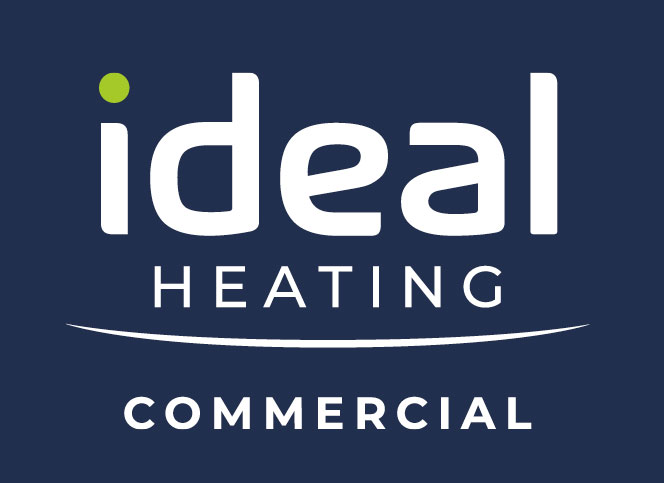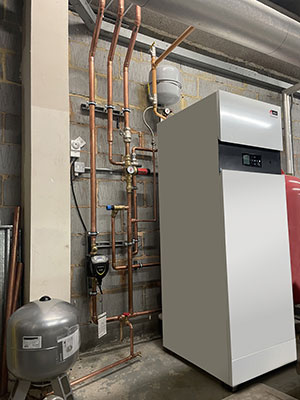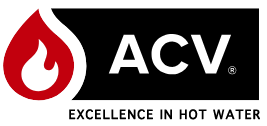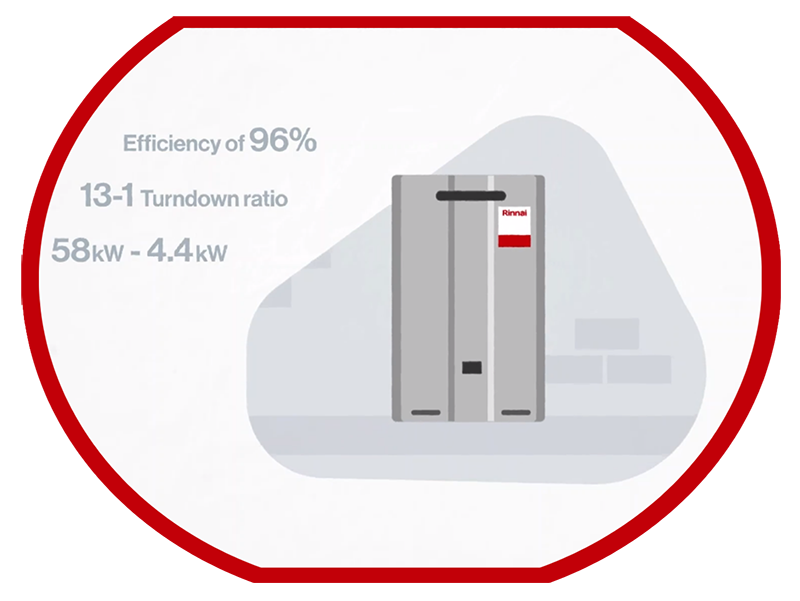
Chris Goggin looks at the current state play in the UK energy , heating and hot water provision marketplace
Commercial heating and hot water provision sectors currently exist in a state of uncertainty in relation to customer costs, outside investment, future direction and implementation of national legislation that encourages decarbonisation. Further turbulence will be exacerbated by the certainty of a UK general election and a possible change of government which could signal a redrafting of national energy policy.
Over a year the current UK government and opposition parties have reneged on several ecological pledges and appears to have lost momentum in implementing national decarbonisation. Shifts in policy has resulted in creating confusion for investors inside the UK energy market. And, in the meantime, life goes on as the population still requires heating and hot water provision, through new build and replacement. UK national energy acquisition, property regulations and UK gas boiler manufacture are areas of the UK energy market that have experienced recent reversals in terms of active or in-coming legislation.
One of the UK’s biggest insurance company’s – Aviva – was quoted in The Times as saying: “the government increasingly focuses on short-term energy security over long-term sustainability.”
As European and American big business have embraced large renewable projects, UK political indecision, ever rising global energy costs and the question of supply security has led to a lack of investment within large scale UK renewable projects. Also published in the same Times article as above, Aviva believe that “the recent dilution in government net zero targets is an even bigger challenge and creates uncertainty.”
The Energy Transition Readiness Index 2023 is a measurement of a regions ability to transition towards NetZero. It is a report compiled for potential investors to evaluate a country’s viability towards profiteering from renewable electricity. The latest report believes that investors will only be attracted towards UK projects if they can observe clear and succinct governance as well as regulatory stability. Presently there is not enough evidence of either to entice outside capital investment.
The UK government has had to offer £800 million to support new offshore wind farms as the amount of capital incentives offered in the previous round of CfD offshore wind auctions failed to attract a single bid.
Concurrent with this is the MEES situation. These are regulations which ensure that all buildings are in ownership of an EPC (Energy Performance Certificate) with an “E” as its lowest rating. Further amendments drafted in 2021 aimed for Minimum Energy Efficiency Standards to be raised to “D” in 2025 and “C” in 2030.
This would have meant that landlords who privately own and rent property across the UK would have had to legally meet energy efficiency standards to continue renting to customers.
However, the UK government has scrapped these plans as implementation would have meant extra costs to both landlord and property rental customer. A redrafting of MEES regulations is expected and will likely impose clean energy standards on rented property.
Also, there is the ‘ban’ on gas boilers being installed at off-grid sites has been lengthened from 2026 to 2035. The “boiler tax” has also been delayed. This proposed tax system would have been imposed on gas boiler manufacturers that failed to substitute several percentage points of boiler sales for heat pump sales, resulting in a £3,000 fine for each missed installation.
A potential new government later this year could also introduce further change to the UK energy market by way of a new direction in policy and cost. As one observer said about the current parlous state of play in the UK now as being akin to ‘all the runners are lined up for a sprint start to a very quick finish line’.
Specifiers, contractors, installers and UK property owners should seek manufacturers of hot water and heating products that can offer a wide range of appliances in the variety of energy vectors to produce low carbon solutions for all residential, industrial and commercial properties. It is likely that the UK will hold on to natural gas for the moment whilst purposely manoeuvring different energies and production into play on a mass scale – be they wind, solar, DME, BioLPG.
TO VISIT THE RINNAI BLOG PAGE AND SUBSCRIBE TO THE RINNAI NEWSLETTER TODAY

RINNAI’S H3 DECARBONISATION OFFERS PATHWAYS & CUSTOMER COST REDUCTIONS
FOR COMMERCIAL, DOMESTIC AND OFF-GRID HEATING & HOT WATER DELIVERY
www.rinnai-uk.co.uk/about us/H3
Rinnai’s H3 range of decarbonising products include hydrogen / BioLPG ready technology, hybrid systems, and a wide range of LOW GWP heat pumps and solar thermal. Also, within Rinnai’s H3 range is Infinity hydrogen blend ready and BioLPG ready continuous flow water heaters which are stacked with a multitude of features that ensure long life, robust & durable use, customer satisfaction and product efficiency.
Rinnai’s range of decarbonising products – H1/H2/H3 – consists of heat pump, solar, hydrogen in any configuration, hybrid formats for either residential or commercial applications. Rinnai’s H3 range of products offer contractors, consultants and end users a range of efficient, robust and affordable decarbonising appliances which create practical, economic and technically feasible solutions. The range covers all forms of fuels and appliances currently available – electric, gas, hydrogen, BioLPG, DME solar thermal, low GWP heat pumps and electric water heaters.
Rinnai H1 continuous water heaters and boilers offer practical and economic decarbonization delivered through technological innovation in hydrogen and renewable liquid gas ready technology.
Rinnai’s H1 option is centred on hydrogen, as it is anticipated that clean hydrogen fuels will become internationally energy market-relevant in the future; Rinnai water heaters are hydrogen 20% blends ready and include the world’s first 100% hydrogen-ready hot water heating technology.
Rinnai H2 – Decarbonization simplified with renewable gas-ready units, Solar Thermal and Heat Pump Hybrids. Rinnai H2 is designed to introduce a practical and low-cost option which may suit specific sites and enable multiple decarbonisation pathways with the addition of high performance.
Rinnai H3 – Low-GWP heat pump technology made easy – Rinnai heat pumps are available for domestic and commercial usage with an extensive range of 4 – 115kW appliances.
Rinnai’s H3 heat pumps utilise R32 refrigerant and have favourable COP and SCOP.
Rinnai is a world leading manufacturer of hot water heaters and produces over two million units a year, operating on each of the five continents. The brand has gained an established reputation for producing products that offer high performance, cost efficiency and extended working lives.
Rinnai’s commercial and domestic continuous flow water heaters offer a limitless supply of instantaneous temperature controlled hot water and all units are designed to align with present and future energy sources. Rinnai condensing water heaters accept either existing fuel or hydrogen gas blends. Rinnai units are also suited for off-grid customers who require LPG and BioLPG or DME.
Rinnai products are UKCA certified, A-rated water efficiency, accessed through multiple fuel options and are available for purchase 24/7, 365 days a year. Any unit can be delivered to any UK site within 24 hours. Rinnai offer carbon and cost comparison services that will calculate financial and carbon savings made when investing in a Rinnai system. Rinnai also provide a system design service that will suggest an appropriate system for the property in question. Rinnai offer comprehensive training courses and technical support in all aspects of the water heating industry including detailed CPD’s. More information can be found on Rinnai’s website and its “Help Me Choose” webpage.
for more information on the RINNAI product range






 Available in six models, WaterMaster Evo features innovative tank-in-tank technology and fast re-heat times. This means that Big Motoring World employees can enjoy a constant supply of hot water during post-shower workouts. Moreover, thanks to a short recovery time, which means that less hot water is required to reach the desired output temperature when it is mixed with cold water, Big Motoring World can expect to benefit from reduced running costs and direct emissions.
Available in six models, WaterMaster Evo features innovative tank-in-tank technology and fast re-heat times. This means that Big Motoring World employees can enjoy a constant supply of hot water during post-shower workouts. Moreover, thanks to a short recovery time, which means that less hot water is required to reach the desired output temperature when it is mixed with cold water, Big Motoring World can expect to benefit from reduced running costs and direct emissions.






